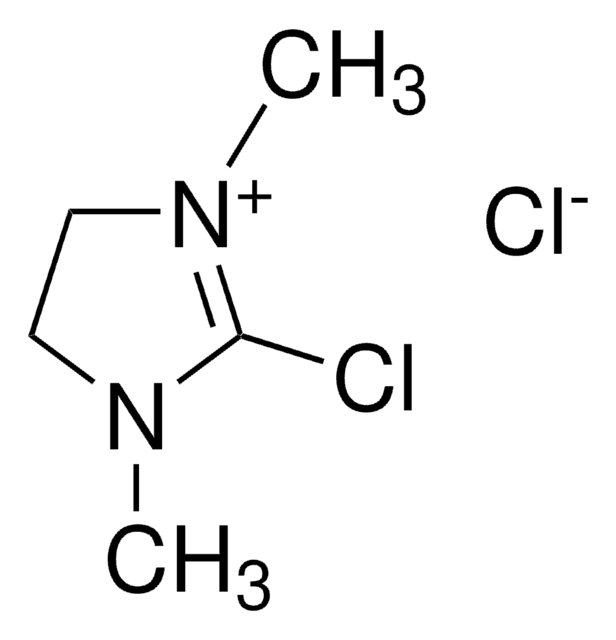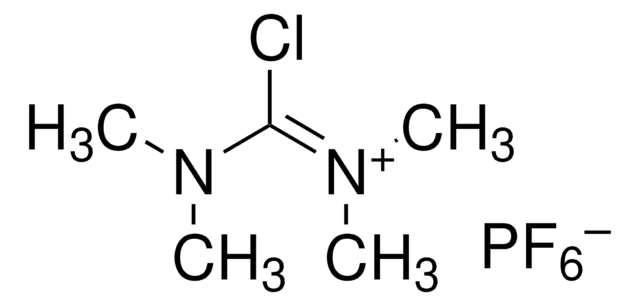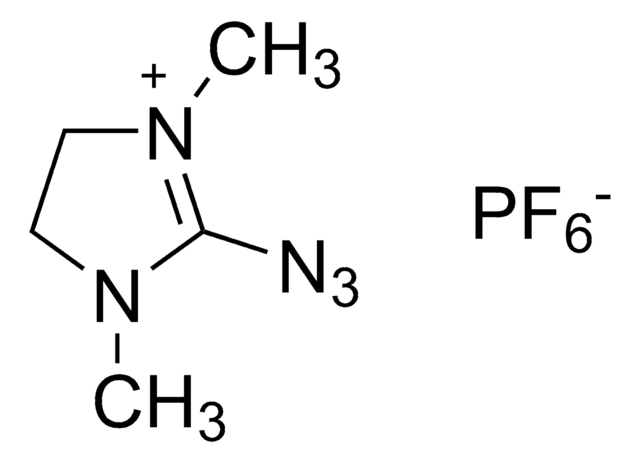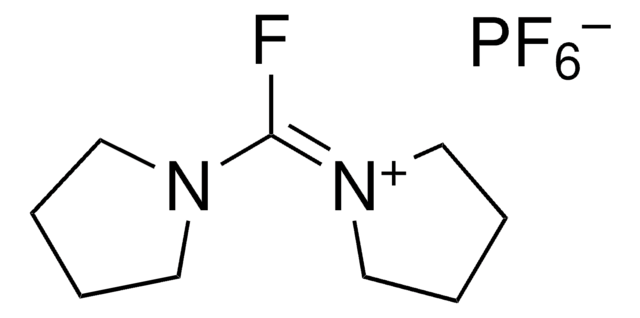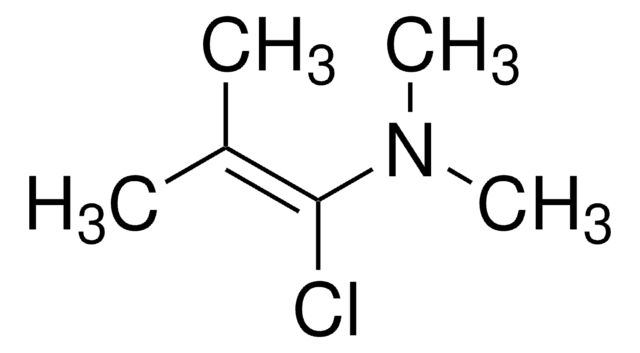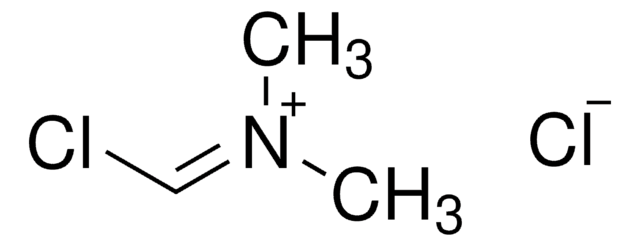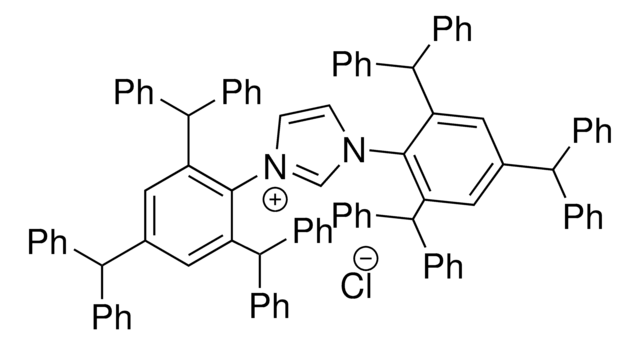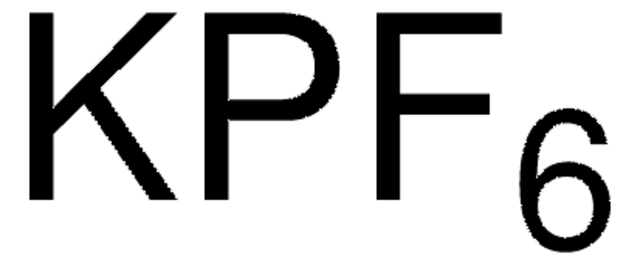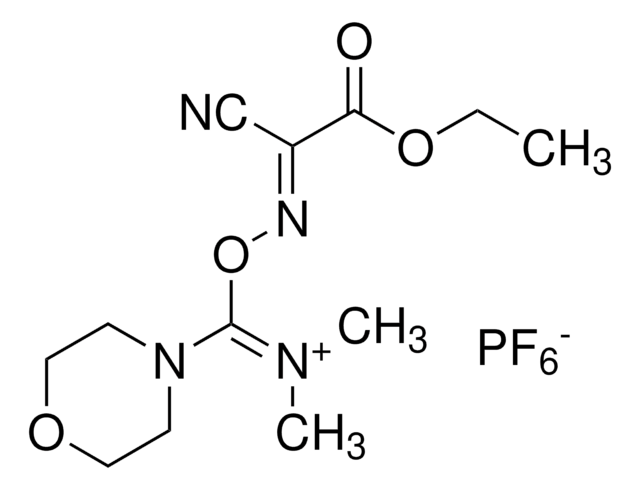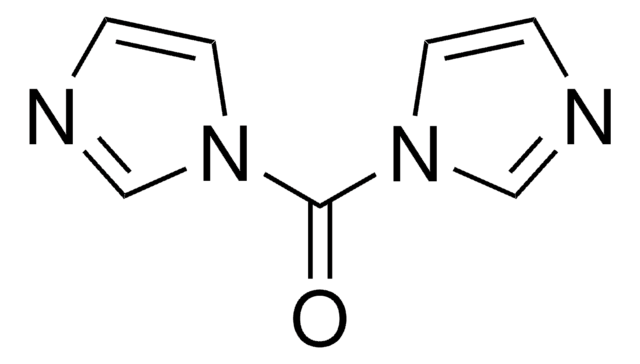420336
2-Chloro-1,3-dimethylimidazolidinium hexafluorophosphate
98%
Synonym(s):
2-Chloro-4,5-dihydro-1,3-dimethyl-1H-imidazolium hexafluorophosphate, CIP
About This Item
Recommended Products
Quality Level
Assay
98%
reaction suitability
reaction type: Coupling Reactions
mp
231-233 °C (lit.)
application(s)
peptide synthesis
SMILES string
F[P-](F)(F)(F)(F)F.CN1CC[N+](C)=C1Cl
InChI
1S/C5H10ClN2.F6P/c1-7-3-4-8(2)5(7)6;1-7(2,3,4,5)6/h3-4H2,1-2H3;/q+1;-1
InChI key
CNAKHAGVVMOXFE-UHFFFAOYSA-N
Looking for similar products? Visit Product Comparison Guide
Application
Diazo-transfer reagents
Reagent for synthesis of:
Cannabinoid CB1 receptor agonists
Selective small-molecule melanocortin-4 receptor agonists
Imidazoles as selective cannabinoid CB2 receptor antagonists
Cyclic alpha-peptoids
Cyclic melanotropin peptide analogues selective for the human melanocortin-4 receptor
Signal Word
Warning
Hazard Statements
Precautionary Statements
Hazard Classifications
Eye Irrit. 2 - Skin Irrit. 2 - STOT SE 3
Target Organs
Respiratory system
Storage Class Code
11 - Combustible Solids
WGK
WGK 3
Flash Point(F)
Not applicable
Flash Point(C)
Not applicable
Personal Protective Equipment
Choose from one of the most recent versions:
Already Own This Product?
Find documentation for the products that you have recently purchased in the Document Library.
Customers Also Viewed
Articles
N-Acylimidazoles were recognized in the early 1950s as reactive intermediates suitable for the acylation of amino compounds. The search for better coupling reagents than DCC led to the development of CDI (1,1’-carbonyldiimidazole) and related carbonylimidazoles.
Our team of scientists has experience in all areas of research including Life Science, Material Science, Chemical Synthesis, Chromatography, Analytical and many others.
Contact Technical Service